Lagos, a city that has consistently proven to be hub of economic activities in West Africa and statistically proven to be the 7th largest economy in Africa, has had a long standing challenge of providing clean and drinkable water for it ever growing population.
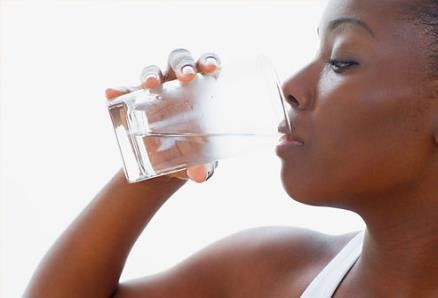
It is a well known fact that the city's total area comprises almost 360,000 hectares (about 3,600 sq. km), yet it lays on a tapestry of islands, lagoons, and creeks interspersed by mangrove. 76,000 hectares of its total area are occupied by the wetlands.
In a bid to get to and fro on a daily basis, I have to jostle through the ever busy metropolis which is largely surrounded by water. Despite the sight of the lagoons and rivers surrounding the city, finding clean and drinkable water has always being a daunting task.
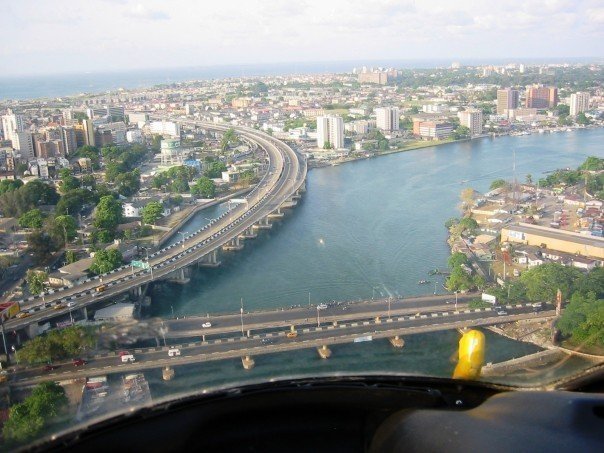
"Buy cold water! Buy pure water!", that is the shout of a young girl hawking drinking water on the ever busy streets of Lagos. This drinking water, popularly called "pure water", being sold is a cellophane water bag which often comes in 50cl and it prices ranges between 5 to 10 Naira (about a cent in US currency).
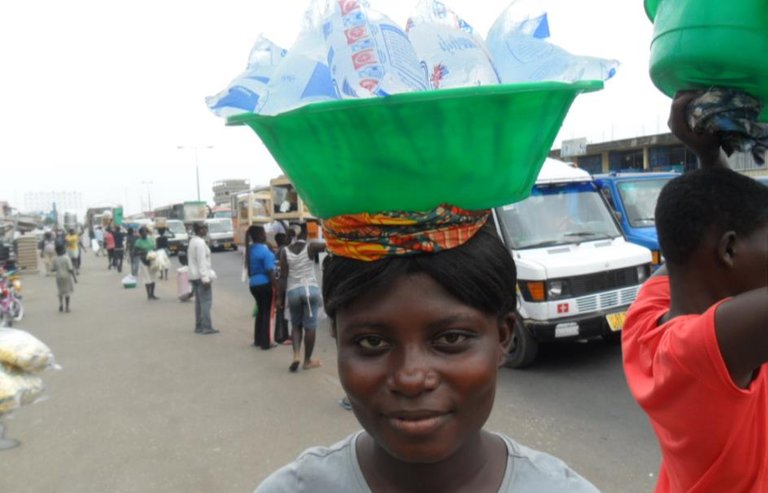
Despite the fact that this cellophane water bag usually comes chilled, neatly packaged and readily available to quench your deep thirst, water experts have adjudged most brands of these cellophane water bag to be 100% unfit for consumption and it is not anything close to being pure yet this warning means absolutely nothing to millions of the city dweller who have little or no access to clean water.
It is a well known fact that this cellophane water bag is the most common source of drinking water in Lagos, yet there are several other source of drinking water with top notch quality. Examples of such are portable plastic waters, commonly referred to as "bottle water", and dispenser plastic water designed for water dispensing machine. This portable plastic waters comes in different plastic shapes, quantities, quality and prices. It prices ranges between 50 to 150 Naira (between 15 to 40 cent in US currency). The quantity of most portable plastic water is usually between the range of 75cl to 1litres. The quality of any plastic water often depends on the brand or company producing it. Most of the city dwellers are familiar with the brand that produce the best plastic water but quite a lot of them usually care less as the quest to quench their thirst real fast takes the front seat.
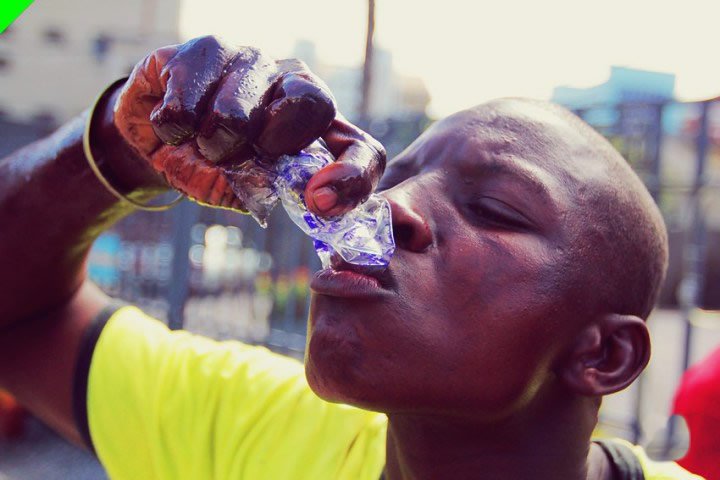
The choice to settle for either the plastic "bottle water" or the famous cellophane “pure water” bag is often subject to one’s pocket and ability to afford their respective cost.
Juxtaposing the popular cellophane water bag and the high class portable plastic water, one will find so many disparity in them. One common attribute is the fact that all of these drinking waters are privately produced by either small scale or large scale companies who consistently rake in tons of profit due to the failure of government to provide one of the most basic need of life.
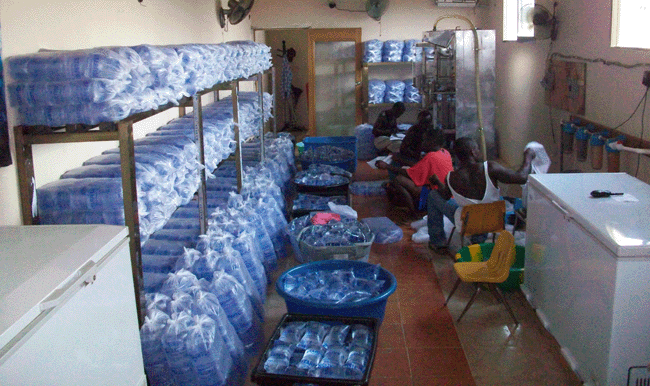
The challenge of finding quality drinking water isn't peculiar to Lagos alone, rather it is a long standing problem being faced by Nigeria as a whole. Several other states in the country encounter more challenges accessing drinking water, thereby making them more susceptible to waterborne diseases.
Residents of Lagos still boast of more access to clean water compared to other states of the country. This is largely due to the high number of private entities producing and selling drinking water in the state.
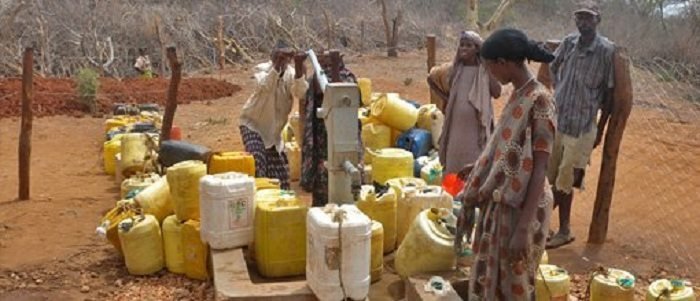
Lagos state has two well known water plants meant to supply the state of potable water. One at Iju, which was built over 80 years ago and another at Adiyan which was commissioned in 1991.
The first plant which its estimated production capacity has been outstripped by the state's growing population of over 20 million was meant to get a sigh of relief after the state built the latter in 1991 with an estimated production capacity of 70 million gallons per day. But the reverse is the case. The state's water supply agency is still grappling with the huge challenge of providing clean and potable water. According to the state, the problem isn’t technical rather it major constraint to constant water supply has been the nationwide problem of generating constant power supply. The epileptic electricity supply from the national energy company remains its major challenge in production and supply. The water supply officials made it known that they often resort to diesel generators which makes the production very expensive.
While it is true that about 10 percent of Lagos resident have access to the water supplied from the state water plants it is also a well known fact that most of the people who fall in that bracket still do not get the supply of water as often as they ought to and they also prefer to patronise privately produced cellophane water bags, portable plastic waters or dispenser water plastics. Their choice to settle for these privately provided drinking water is majorly due to the lack of trust in the quality of water received from the state’s water supply plants.
The major complain from recipients of the water is the colouring found in tap water. The management of the state water supply plant have been swift to refute the claim of supplying poor quality water. It states boldly that the water plants, most especially the Iju Waterworks, meets international standards and that the quality of the water supplied are usually affected negatively as a result of contamination in the pipes transporting water into people’s home.
The big question which most "Lagosians", as we are fondly referred to, have gotten tired of asking is when will this big city called Lagos finally solve the conundrum of providing quality and clean water for it inhabitants.
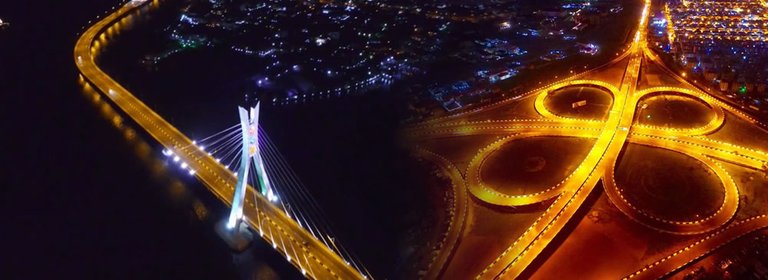
All Image Source
Excellent information
You could upvote if its excellent...
Clean Water much needed here in Lagos. Good writeup